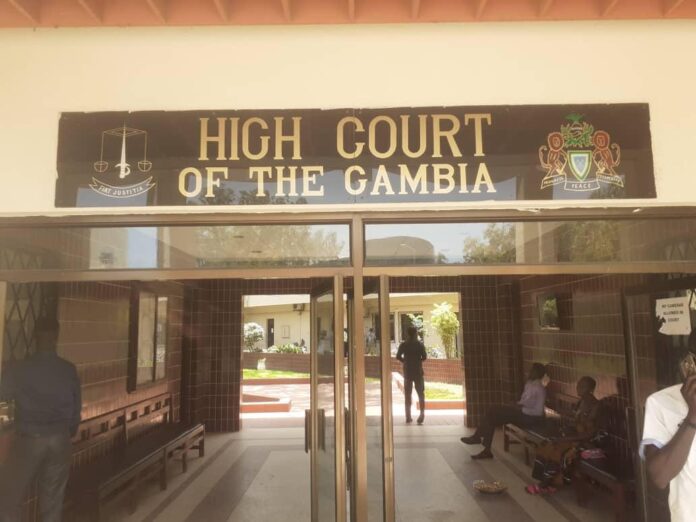By Kemeseng Sanneh (Kexx)
State Counsel representing the Clerk of the National Assembly, the Minister of Finance and Economic Affairs, and the Attorney General have mounted a robust defense before the Supreme Court, urging dismissal of a lawsuit challenging the late tabling of the 2025 national budget estimates.
The suit, brought by Sait Matty Jaw, Madi Jobarteh, Coach-Pasamba Jow, and Baboucarr Sufism Nyang, seeks a declaration that the National Assembly’s acceptance of the 2025 budget beyond the constitutional deadline violates Section 152 of the Constitution. The plaintiffs argue that any actions taken based on the delayed budget should be declared null and void.
But in arguments before the Court’s five-member panel, State Counsel Okete countered that the suit should be struck out, asserting that the National Assembly acted within its procedural authority and that the court lacks jurisdiction to interfere.
At the heart of the state’s argument is Section 108(2) of the Constitution, which Okete said bars judicial scrutiny of decisions made by the National Assembly or its Speaker under Standing Orders. He invoked Order 8 of the Assembly’s rules, which empowers the Speaker to make procedural decisions in the absence of specific guidance, drawing from constitutional principles, statute law, precedent, and parliamentary practice.
“The Speaker acted under established procedural authority,” Okete argued, “and that action is shielded from judicial inquiry by Section 108(2).”
To strengthen his position, Okete turned to foreign jurisprudence, citing decisions by the U.S. Supreme Court and the Ghanaian judiciary. In Dolan v. United States (2010), the U.S. Supreme Court ruled that a missed statutory deadline does not automatically nullify government action unless the law explicitly states so. He also referenced Brock v. Pierce County (1986), where delayed action by the U.S. Labor Department did not bar recovery of misused funds.
“Section 152 does not expressly state that a delayed submission invalidates the budget,” Okete told the Court, arguing that the National Assembly retains the power to consider and pass the budget, even after the deadline.
He further cited United States v. Montalvo-Murillo (1990), where the court held that a statutory deadline alone does not eliminate institutional authority absent clear legislative intent.
On the local front, Okete referenced Ya Kumba Jaiteh v. The Clerk of the National Assembly to support a purposive approach to constitutional interpretation, warning that a rigid reading of the timeline provision could lead to “absurd” consequences, such as a government shutdown.
“The court’s role is not to frustrate governance but to ensure its legality,” he said, emphasizing that the delayed tabling served the public interest.
He described the plaintiffs’ case as a procedural dispute rather than a substantive constitutional violation. Quoting a 2024 Ghanaian Supreme Court ruling (Dr. Prince Ohiri Korang v. Attorney General), Okete argued that constitutional litigation must raise real and live issues — not “academic” or “frivolous” ones.
He also referred to Richard Sky v. Parliament of Ghana & AG (2024), stressing the principle that courts should avoid issuing unenforceable orders, especially in complex matters like national budgeting already in execution.
In his conclusion, Okete maintained that the late submission was a procedural irregularity, not a constitutional breach. He said invalidating the 2025 budget at this stage would undermine essential government services and the broader public interest.
















